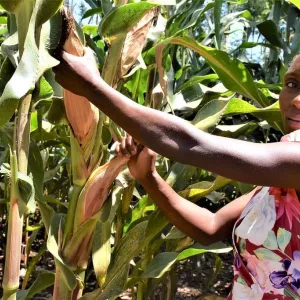Drought-tolerant maize project pioneers a winning strategy for a world facing climate change
Since the 1980s, the International Maize and Wheat Improvement Center (CIMMYT) and the International Institute of Tropical Agriculture (IITA) have spearheaded the development and deployment of climate-smart maize in Africa. This game-changing work has generated massive impacts for smallholder farmers, maize consumers, and seed markets in the region. It also offers a blueprint for CGIAR’s new 2030 Research and Innovation

Drought-tolerant maize project pioneers a winning strategy for a world facing climate change
Since the 1980s, the International Maize and Wheat Improvement Center (CIMMYT) and the International Institute of Tropical Agriculture (IITA) have spearheaded the development and deployment of climate-smart maize in Africa.
This game-changing work has generated massive impacts for smallholder farmers, maize consumers, and seed markets in the region. It also offers a blueprint for CGIAR’s new 2030 Research and Innovation Strategy, which proposes a systems transformation approach for food, land and water systems that puts climate change at the center of its mission.
Over the course of the 10-year run of the first iteration of this collaborative work on climate-adaptive maize, the Drought Tolerant Maize for Africa (DTMA) project, CIMMYT and IITA partnered with dozens of national, regional, and private sector partners throughout sub-Saharan Africa to release around 160 affordable maize varieties. This month, CGIAR recognizes climate-smart maize as one of the standout 50 innovations to have emerged from the institution’s first half-century of work.

